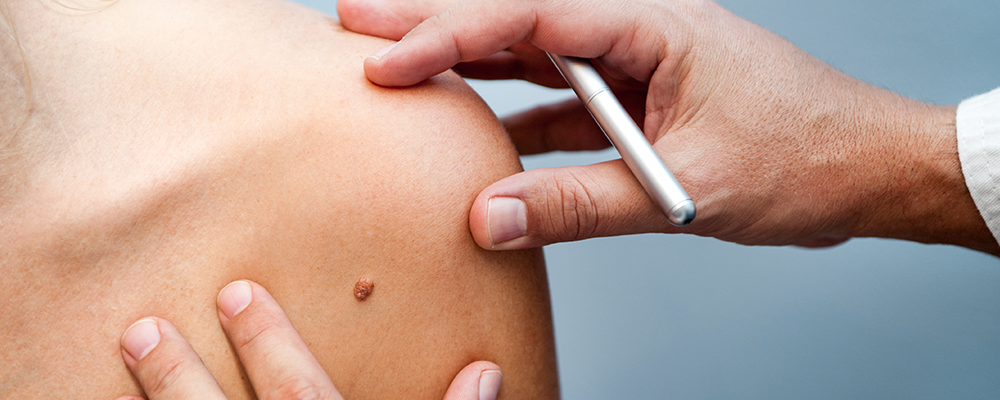
Mole Checks are available at CBD Medical
The word cancer is one that sends shivers down the spine, but familiarising yourself with the best ways to prevent and treat the illness is a responsibility that everyone must accept. While there are many types of cancer that you need to be aware of, skin cancer is the condition that nobody in Brisbane can afford to overlook for a second. As such, understanding when to get moles checked for skin cancer is something every Brisbane resident and visitor should know.
Brisbane is a city that's blessed with beautiful sunshine and a real beach culture. While this provides the platform for creating magical memories and living life to the fullest, this exposure to the sun will increase the likelihood of moles and other skin blemishes.
While it’s likely that those moles won’t be cancerous (it’s normal to have up to 40 in adulthood), it’s always better to be safe than sorry. Here’s how to keep yourself in good health in the Brisbane sun.
When should you get a mole checked?
Moles and other skin blemishes will become more visible in the sun, but this doesn’t necessarily mean that you have anything to fear. Many will be completely safe and pose no danger to your health whatsoever. However, there are several signs to look out for.
First and foremost, the ABCDE rule is a very easy one to remember and will help you quickly identify potentially problematic moles. Remember to look out for the following five things:
Asymmetry – Does one half of the mole look significantly different to the other?
Borders – Are the edges of the mole irregular in shape?
Colours – Does the mole have several colours rather than a uniform appearance?
Diameter – Is the mole larger than 6mm in diameter.
Evolving – Has the mole grown, changed shape, or become elevated?
In addition to the ABCDE rule, you should be vigilant to itching, bleeding, and pains. If any of these issues occur, or even if you’re just a little concerned, you should get your moles checked out ASAP. After all, the sooner skin cancers are detected, the better hope you’ll have of beating the disease without the need for surgery or life-changing treatments.
It’s not an overstatement to say it could save your life.
What moles should be checked?
Moles are growths that can appear on any part of the body. While they may all appear to be pretty similar to the untrained eye, it’s important to know about the various types of moles on your body. Moles can be classified as;
Congenital nevi – moles that appear at birth, affecting 1% of the population.
Acquired – moles that develop during childhood or early adulthood.
Atypical nevi – moles that are larger than average.
Junctional melanocytic nevi – moles that stem from an accumulation of melanocytes.
Intradermal nevi – moles that blend in with the surrounding skin colour.
Compound nevi – moles that show attributes of both junctional melanocytic nevi and intradermal nevi.
Halo nevi - moles that are raised and surrounded by a ring of skin.
Not all moles are at great risk of being cancerous. For example, the intradermal type are almost always benign. Small congenital nevi moles are usually fine too, although those of a larger appearance should be checked out as they can develop malignant melanoma.
Atypical nevi are often hereditary. In this instance, then, you will definitely want to have them checked out if someone in the family has suffered from skin cancer, particularly if you have lots of them,
Acquired moles are caused by continued sun exposure. While they are usually benign, it is possible for them to turn cancerous. So, if they show any of the signs from the ABCDE ruling, you must take note.
The position of a mole can have a big influence too. For men, moles found on the back are particularly prone to becoming cancerous. For women, the legs are a body part that deserves extra attention.
If the mole has neat edge, is smooth, smaller than 6mm and stays the same over time, it’s probably benign.Where can I get moles checked?
If you have a mole that needs to be checked out, it’s imperative that you have it checked out by the right person. There are many options at your disposal. When living in Brisbane or the surrounding areas, though, CBD Medical is the best option by far.
Established in 1987, we have over 30 years experience servicing patients of all ages throughout Brisbane. We are the preferred Medical provider for the Brisbane Tourism and the Convention Centre, and all the leading hotels in the CBD and Southbank. We also cater to overseas students and backpackers. We are recommended by international travellers’ guide books such as Lonely Planet.
Our doctors and skin doctors are passionate about providing personalised and dedicated care, taking into account each patient’s individual needs and concerns to ensure that you’re fully satisfied with our service.
In addition to providing the most accurate diagnosis on all moles, we appreciate that this is a scary time in your life and take great pride in comforting you during this time. Essentially, we provide the comprehensive and caring mole-checking service you deserve. Whether your moles are benign or cancerous, ours is service that all Brisbane residents deserve.
How often should you get your moles checked?
The earlier you identify cancer, the best chance you’ll have to beat it. Therefore, getting your moles checked for cancer on a regular basis is an essential step to consider.
Checking those moles at home on a frequent basis should be on everyone’s agenda. Cancer Council recommends all adults should check their skin and moles every 3 months. If you spot reasons for concern, or notice bleeding and itching in the meantime, it’s best to give the experts a call.
As far as professional checks are concerned, it depends on your family history. If a family member has had skin cancer, you should get checked annually for potential risks and developments. If there is no history, a one-off check should be fine – unless any of the symptoms arise.
The final word
Moles are very common and very normal, but that shouldn’t be an excuse to ignore the threat of cancer.
First and foremost, you should always take the right precautions such as wearing sun lotion on hot days. Meanwhile, if you spot a new mole or a mole that has changed appearance, you may want to get it checked out – particularly if it shows any of the ABCDE symptoms.
Even if it’s simply to confirm that it’s benign, a trip to the doctors is better than a life of worry. Call CBD Medical today on 07 3211 3611 to book your appointment.
